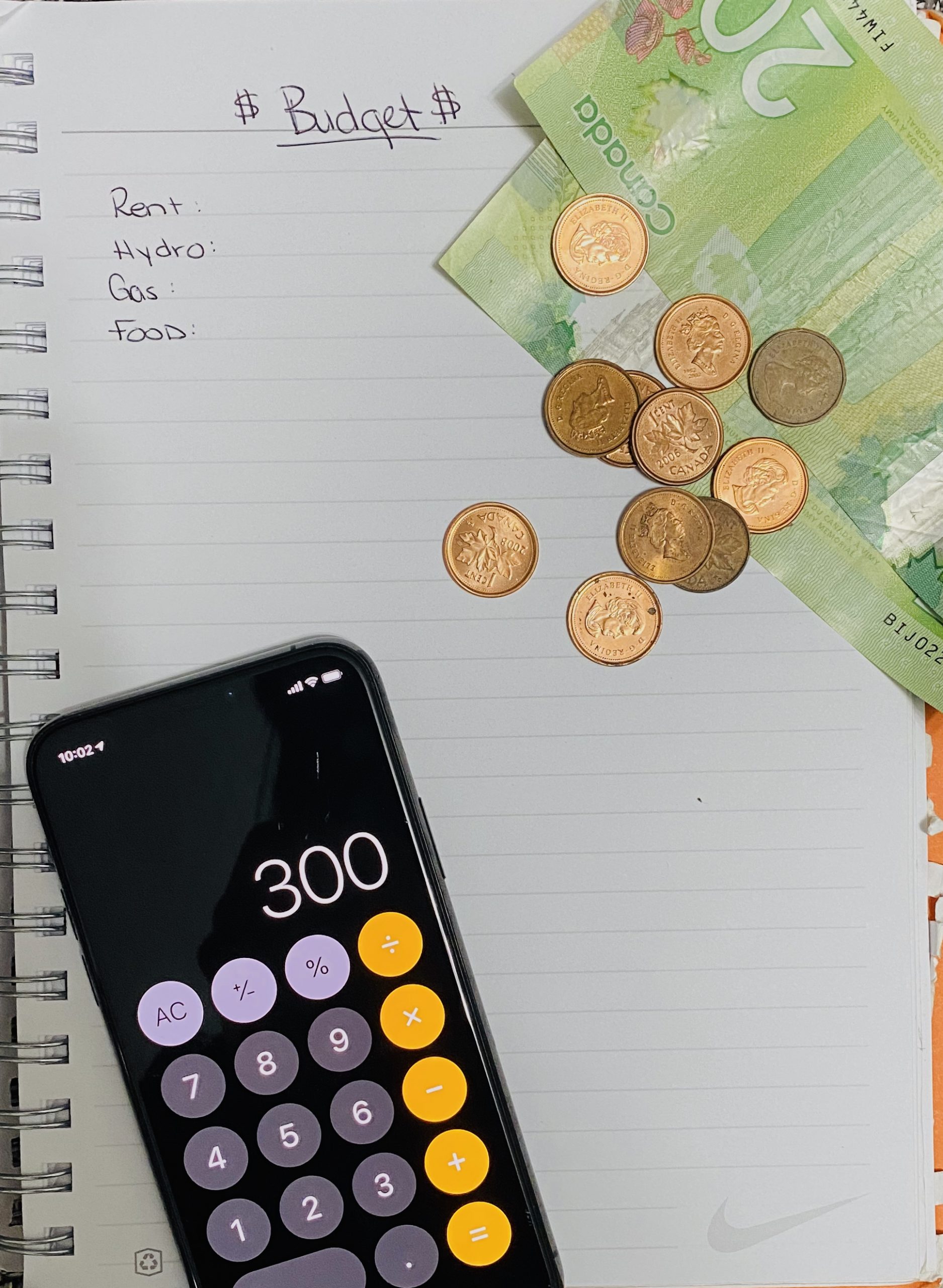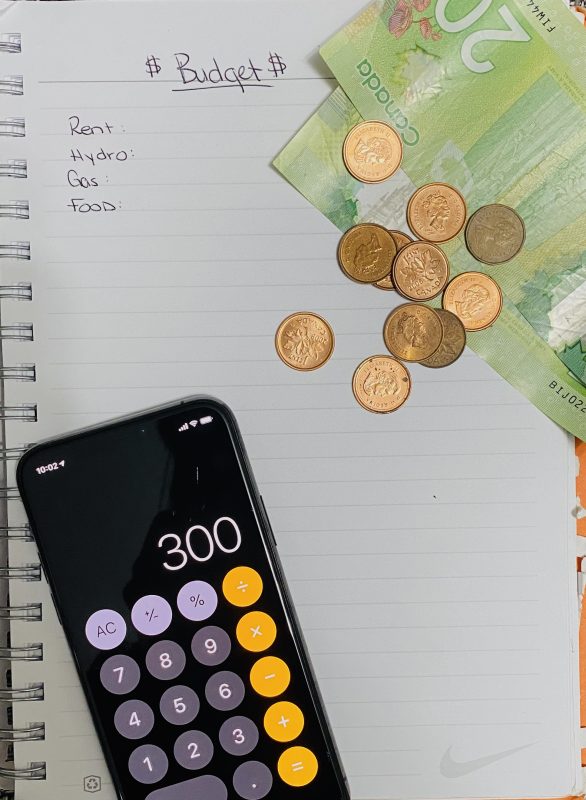Student budgeting never gets easier, but here’s how to do it anyway


Face it, we are all culprits of spending money that isn’t in our budget, and managing your personal finances can be daunting, even if you have a steady income. While you may have ordered one too many times from Uber Eats, some students are faced with bigger budgeting challenges as a result of the COVID-19 pandemic.
In late March, the COVID-19 shutdown changed a lot. In-person businesses were forced to close, schools transitioned to online delivery, and everyone was advised to stay home and shut out the face-to-face world. These abrupt changes left the economy suffering, resulting in people being laid off or unable to find work.
Due to the economic shutdown and uncertainty of COVID-19, a lot of students were unable to find summer work to pay for their schooling and personal expenses, thus relying on student financial aid programs like the Canada Emergency Student Benefit (CESB) and the Ontario Student Assistance Program (OSAP).
With limited financial assistance and tighter bank accounts, it’s more important now than ever to create a budget for your finances to ensure you can make ends meet and still be on a path to pay off student debt. Taking the time to calculate your finances and make a plan is the best way to manage your finances and stick to a budget!
Start by calculating your net income.
If you have part-time work or an internship, calculate your monthly income after taxes. Whether you are working or not, this is an important step to record any loans, grants, or scholarships you’ve received to get a total of the money you have to spend.
List and organize your expenses into fixed and variable categories.
A fixed expense is a bill that must be paid, such as rent, utilities, groceries, textbooks, student loans, etc. As students, we have a lot of fixed expenses, so it’s important to be flexible with our variable expenses. Variable expenses are typically our wants that create unnecessary expenses, like ordering take out, subscribing to streaming services, or non-school gym memberships.
Determine your average monthly cost for each expense.
Refer to your credit card statements and bank account history to determine your expenses. While fixed expenses might be easier to calculate, take the average of your variable expenses over a few months to get a more accurate estimate of these expenses.
Once you’ve done the math, adjust your spending.
Ensure that your expenses are not exceeding your income, but if you’re unemployed, ensure your spending habits are not exceeding the money you have saved. Regardless of your employment status, you should try to cut down on spending wherever you can.
While an easy solution, and the solution for most students, is to cut down on variable expenses, you can also cut down on some fixed expenses. For instance, when buying your textbooks, try to find a used copy from another student. When buying groceries and other household items, clip coupons (or download Flipp) and try to visit stores on their student discount days.
Finally, stick to the budget.
While these savings may not seem like a lot, they add up in the long term and help you save small amounts of money to put aside for future bills. People often make the mistake of putting away large amounts of money for future expenses but will dip into these savings when they’re pressed for money.
When trying to create a student budget, it’s essential to hold yourself accountable for your spending and record your expenses daily. This may be a hard habit for some, but once budgeting becomes a habit, you will feel less concerned or overwhelmed with your personal finances.

